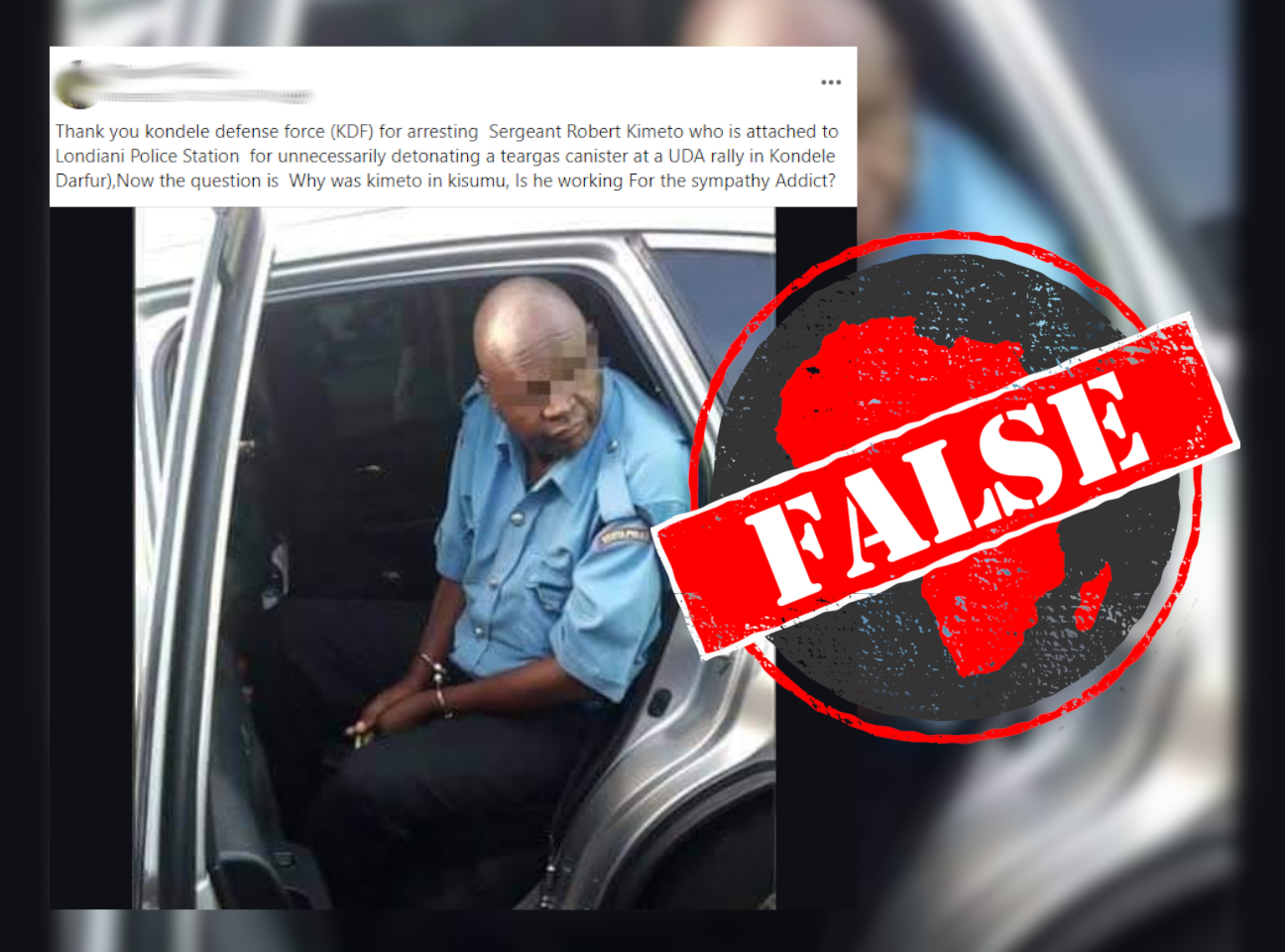With Kenya’s 2022 general election approaching, political rallies attended by large crowds are becoming more frequent. On 10 November 2021, deputy president William Ruto spoke at such a rally in Kisumu county’s Kondele area.
But a crowd of young people disrupted the rally, and the police used tear gas. Kisumu has historically voted strongly for Ruto’s main political rival, Raila Odinga. That afternoon, a photo of a police officer in handcuffs, sitting in a car, started circulating on Facebook.
“Thank you kondele defense force (KDF) for arresting Sergeant Robert Kimeto who is attached to Londiani Police Station for unnecessarily detonating a teargas canister at a UDA rally in Kondele Darfur,” its caption reads. “Now the question is Why was kimeto in kisumu, Is he working For the sympathy Addict?”.
Ruto is often described as “the sympathy addict”. The UDA is Ruto’s United Democratic Alliance political party.
But does the photo really show a police officer named Robert Kimeto, arrested at the November 2021 Kondele rally for “detonating a teargas canister”?

Arrested for taking bribes
A reverse image search reveals that the photo was first posted on several Twitter accounts on 20 November 2019. It shows one of five police officers arrested by the Ethics and Anti-Corruption Commission for taking bribes in Kisumu. The name “Robert Kimeto” does not appear on NTV Kenya’s list of the arrested officers.
The officer in the photo can be clearly seen on the far right in other photos and in screenshots of footage of the arrests.
He was arrested for taking bribes two years ago, not for detonating a teargas canister at a Ruto rally in November 2021.
Republish our content for free
For publishers: what to do if your post is rated false
A fact-checker has rated your Facebook or Instagram post as “false”, “altered”, “partly false” or “missing context”. This could have serious consequences. What do you do?
Click on our guide for the steps you should follow.
Publishers guideAfrica Check teams up with Facebook
Africa Check is a partner in Meta's third-party fact-checking programme to help stop the spread of false information on social media.
The content we rate as “false” will be downgraded on Facebook and Instagram. This means fewer people will see it.
You can also help identify false information on Facebook. This guide explains how.


Add new comment